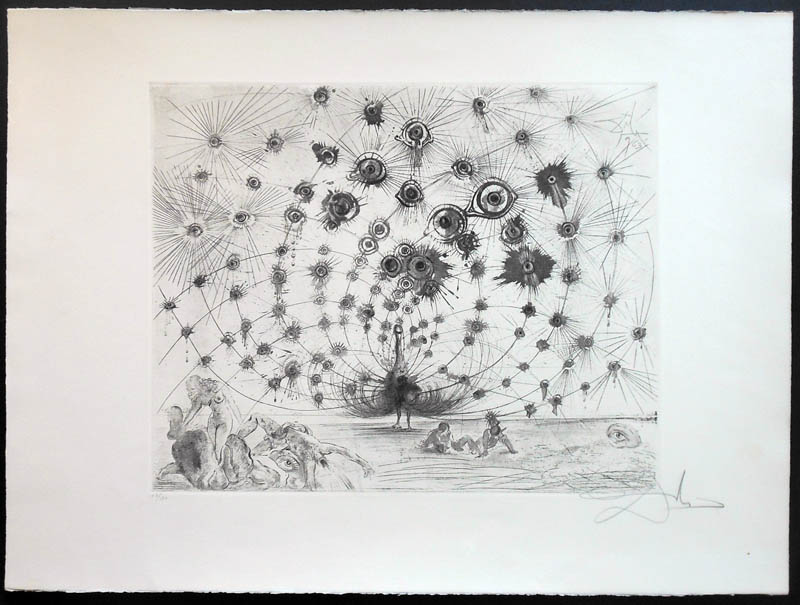Salvador Dali - The Mythology - Argus
Salvador Dali
Spanish (1904 – 1989)
Salvador Dali Argus – 1963
The Salvador Dali Argus etching is from The Mythology suite. Dali created the etchings between 1960 and 1964.
Dali signed each etching in the lower right. Sometimes he would add a date. For this suite, the tirage number is 43/150. It appears in the lower left. Pierre Argillet, Paris published the suite. The suite is authentic.
There is a separate edition of Argus which is in color. The tirage is 50 plus 5 EA. The paper is Japon.
Click on this link for additional background information on Salvador Dali.
Call us for more information. The Argus etching is Available!!!
Go to the main Mythology page for complete engraving information.
Argus Engraving

The creative process.
The drypoint process was used to create the Argus etching. With this process, Dali could sketch an idea onto a blank copper or zinc plate. For this, he used a diamond point or another sharp tool. The incised lines would then hold and print the ink.
Acid dissolves uncovered areas of the plate. This results in etched lines. The etched lines are typically the same width from one end to the other. Drypoint lines vary in their width, darkness and may actually be missing is some areas.
In the first runs of the plate, the edges of the lines exhibit a feathery appearance. This occurs because ink is held in the burr. The burr forms using a diamond point. This is similar to a furrow that forms when a farmer plows a field. Each time the plate is printed, it must be wiped to remove excess ink and other stray material. During this process the burr will wear down. The later a particular etching is in a run, the burr will have worn down and the rich wider look to the lines will be missing.
For lines formed using etching, there will be blunt end. A pointed end is more indicative of engravings. Usually, etched lines will appear the same over the area of the paper they are printed on. The width of drypoint lines will vary.


